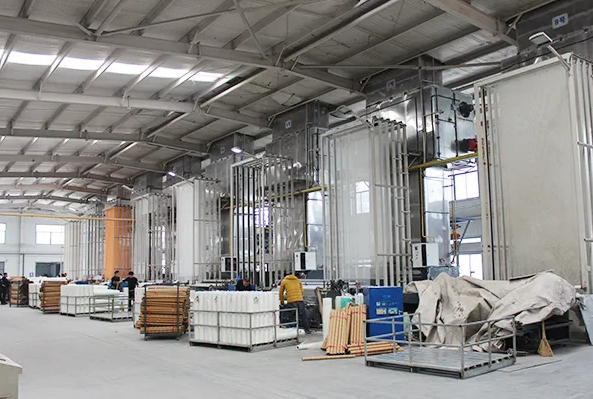What is alkali resistant fiberglass mesh?
In the realm of construction and building materials, the demand for durable and resilient solutions has led to the development of innovative materials. Alkali-resistant fiberglass mesh is one such advancement that plays a crucial role in reinforcing structures, providing strength, flexibility, and resistance to environmental factors.
1. Understanding Alkali-Resistant Fiberglass Mesh:
1.1 Composition:
Alkali-resistant fiberglass mesh is composed of woven or knitted fiberglass strands coated with a special alkali-resistant treatment. This treatment imparts resistance to alkali materials commonly found in cement-based products, ensuring the longevity of the mesh in construction applications.
1.2 Reinforcement Properties:
The primary purpose of alkali-resistant fiberglass mesh is to reinforce various construction materials, such as concrete and stucco. It acts as a support matrix, enhancing the structural integrity of the material it is embedded in.
2. Key Characteristics:
2.1 Alkali Resistance:
The standout feature of this type of fiberglass mesh is its resistance to alkali substances, including those present in cement and mortar. This resistance prevents the mesh from degrading or losing strength when in contact with alkaline materials.
2.2 High Tensile Strength:
Alkali-resistant fiberglass mesh exhibits high tensile strength, providing robust reinforcement to construction materials. This strength is crucial for preventing cracks and improving the overall durability of the finished structure.
2.3 Flexibility:
The flexibility of alkali-resistant fiberglass mesh allows it to conform to various surfaces and shapes. This flexibility ensures uniform distribution within construction materials, contributing to improved load-bearing capacity and resistance to stress.
3. Applications in Construction:
3.1 Concrete Reinforcement:
Alkali-resistant fiberglass mesh is commonly used to reinforce concrete. It is embedded within the concrete mix to control cracking, improve tensile strength, and enhance the structural performance of the concrete.
3.2 Stucco and Plaster Reinforcement:
In exterior applications, such as stucco and plaster finishes, alkali-resistant fiberglass mesh is employed to prevent cracking and improve the adhesion of these finishes to the substrate. This contributes to the longevity and aesthetic appeal of the exterior surface.
3.3 Masonry Reinforcement:
Brick and masonry construction can benefit from the use of alkali-resistant fiberglass mesh to reinforce mortar joints. This reinforcement helps in preventing the development of cracks and enhances the overall stability of masonry structures.
4. Advantages of Alkali-Resistant Fiberglass Mesh:
4.1 Durability in Harsh Environments:
The alkali resistance of the fiberglass mesh makes it particularly durable in environments where exposure to alkaline substances is inevitable, such as in concrete structures.
4.2 Reduced Cracking:
The incorporation of alkali-resistant fiberglass mesh significantly reduces the occurrence of cracks in construction materials. This is especially crucial in concrete, where cracking can compromise the structural integrity.
4.3 Improved Longevity:
Structures reinforced with alkali-resistant fiberglass mesh are known for their extended lifespan. The reinforcement provided by the mesh contributes to the overall durability and resilience of the construction materials.
5. Installation and Maintenance:
5.1 Ease of Installation:
Alkali-resistant fiberglass mesh is relatively easy to install. It can be cut to size and applied to surfaces using appropriate adhesives or embedded within the material during construction.
5.2 Low Maintenance Requirements:
Once integrated into construction materials, alkali-resistant fiberglass mesh requires minimal maintenance. Its durability ensures that the reinforced structure can withstand the test of time with reduced need for repairs.
Alkali-resistant fiberglass mesh stands as a stalwart reinforcement solution in the construction industry, offering a combination of alkali resistance, high tensile strength, and flexibility. From concrete to stucco and masonry, this versatile material plays a pivotal role in enhancing the structural integrity and longevity of diverse construction applications. As the construction landscape continues to evolve, the importance of innovative materials like alkali-resistant fiberglass mesh in ensuring resilient and enduring structures becomes increasingly evident.
186
0
0



Comments
All Comments (0)